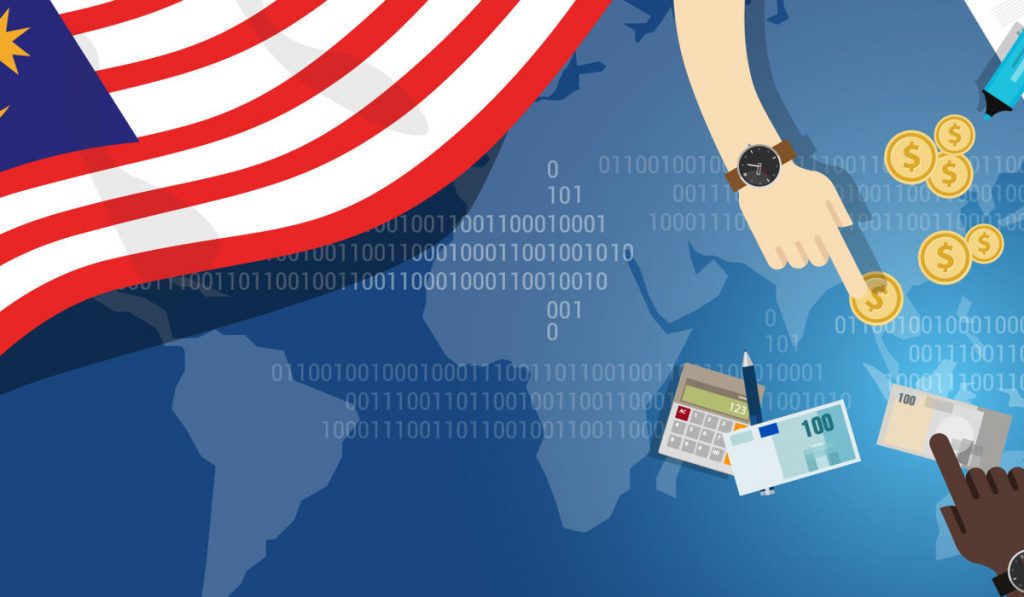The impressive growth of the Malaysian economy is the real success story this year, with more positive news coming this month. An International Monetary Fund (IMF) representative said our economic outlook remains stable for next year with strong domestic consumption and investments.
“We see strength in domestic demand and investments, and expect them to remain robust in Malaysia entering 2013,” IMF deputy division chief of Asia and Pacific department, Dr Rodrigo Cubero, recently told reporters.
The full-year GDP growth in 2012 is expected to be 5 per cent or more, following the impressive economic performance already seen in the first three quarters of 2012.
The growth in domestic demand has been supported by private investments, while our exports have grown on the back of demand from China and India.
China, Malaysia’s biggest trading partner, could see a growth rate of between 8.2 per cent and 8.8 per cent next year, while trade with India is set to breach the RM45 billion mark this year. This is expected to boost our economic performance even further.
The IMF’s Cubero forecast that commodity prices were expected to remain stable next year, but “Malaysia may benefit from shocks in oil prices since the country is an oil exporting country”.
Despite the naysayers in the pro-Opposition media, Malaysia’s industrial output rose 5.8 per cent in October compared to the same month last year, indicating that our economy continues to strengthen despite the global downturn.
This follows the recent news that Malaysia also achieved a jump in trade surplus in October of RM9.6 billion, up from RM6.5 billion in September.
Inflation has also moderated to 1.4 per cent in the third quarter, down from 1.7 per cent in the second quarter.
This series of good news on the economic front comes as no surprise. Indeed, it follows from Prime Minister Datuk Seri Najib Razak’s emphasis on high-income status for the nation as the main goal for 2020.
Najib has shown that he wants Malaysia to be globally competitive, attracting investors and generating world-class talent. He has implemented sweeping reforms to unleash the potential of young Malaysians and to spread the benefits of development to all sections of the population.
The only group not rejoicing is Pakatan Rakyat whose leaders find themselves unable to attack the government’s successful economic record. With Anwar and his friends only offering populist promises – such as cheaper cars and abolishing tolls, that could cost the exchequer RM200 billion – the Opposition coalition is clearly running out of ideas.
Najib, on the other hand, is just getting started. The Economic Transformation Programme (ETP) has been praised by the British Minister for International Development Alan Duncan, who said it has boosted Malaysia’s international image as the nation moves towards becoming a more sustainable and “green” country.
“Previously, I have worked in the region for almost 25 years and I have seen massive and exciting changes after Prime Minister Datuk Seri Najib Tun Razak took over.
“The Iskandar project, particularly, is the perfect example of the changes and we are looking forward to collaborate with Malaysia to developed the smart city,” the British minister said on an official visit earlier this month.
The United Kingdom is committed to doubling its bilateral trade volume with Malaysia. During British Prime Minister David Cameron’s visit in April, he had pointed out that Malaysia was evolving into one of the great emerging powers of the 21st century.
The engine of growth for the next few decades will be Iskandar Malaysia, which has exceeded expectations as a dynamic growth corridor by attracting over RM105 billion in investments in various sectors.
Time magazine recently praised the government’s plans for Iskandar, calling it “one of the most ambitious development projects in the world”.
The American newsmagazine supported Najib’s “brave position” to exempt companies operating in Iskandar from pro-bumiputera policies. This, it said, would help attract industries such as financial services, education, tourism and health care, all of which are attracted by the Prime Minister’s pro-business approach.
As Malaysia confidently takes its place on the global stage, it is clear that this is largely due to Najib’s long-term vision for the country and his stable roadmap towards achieving it.

